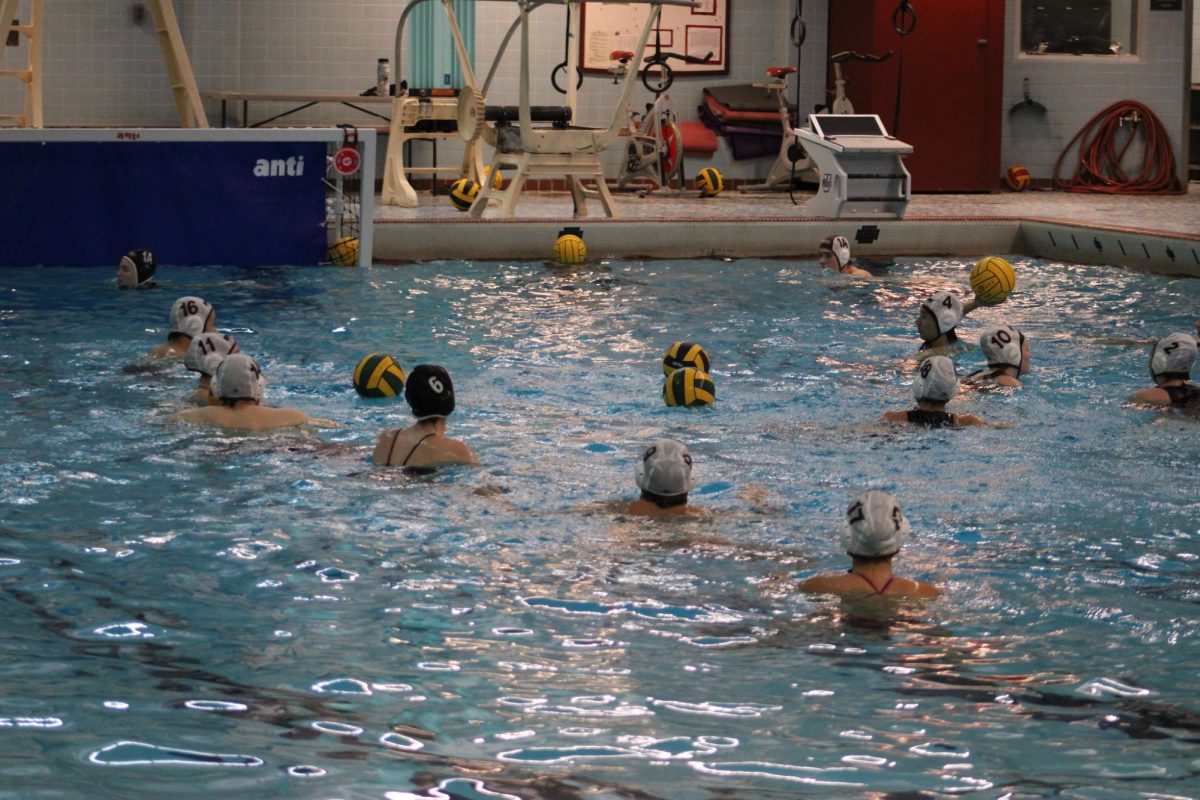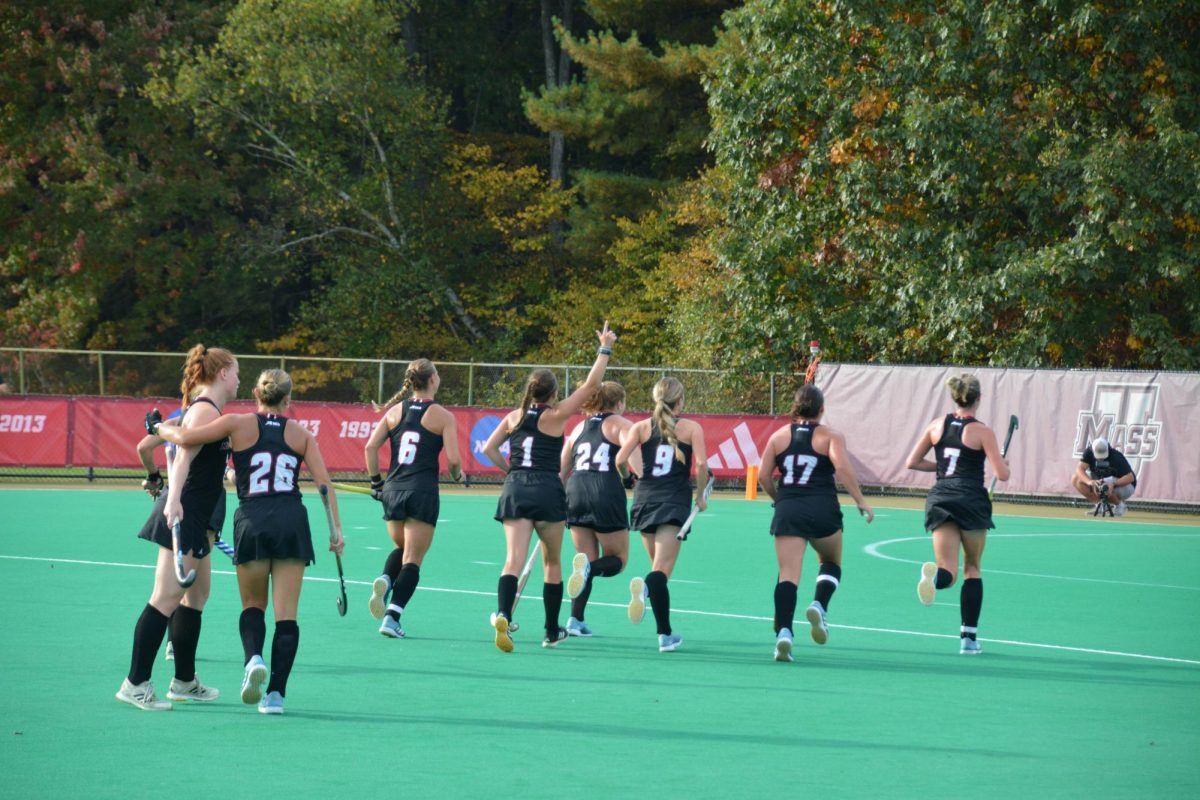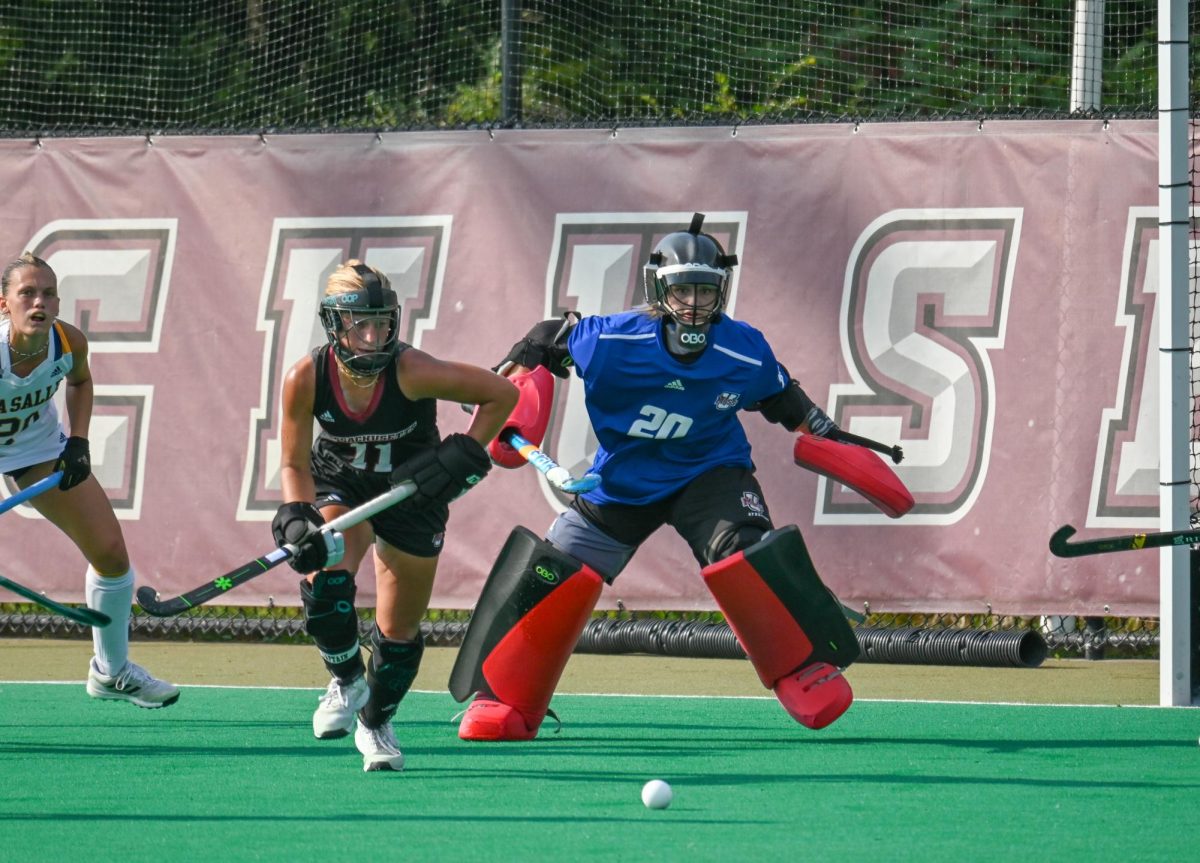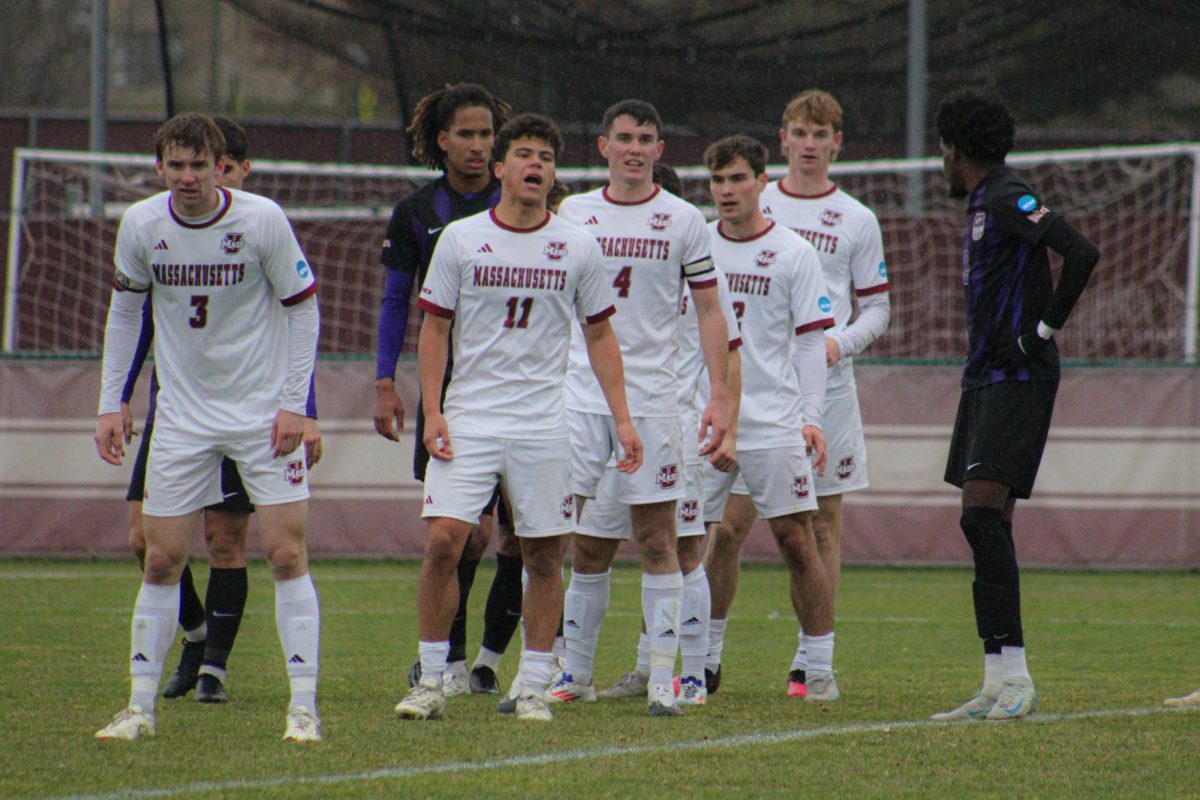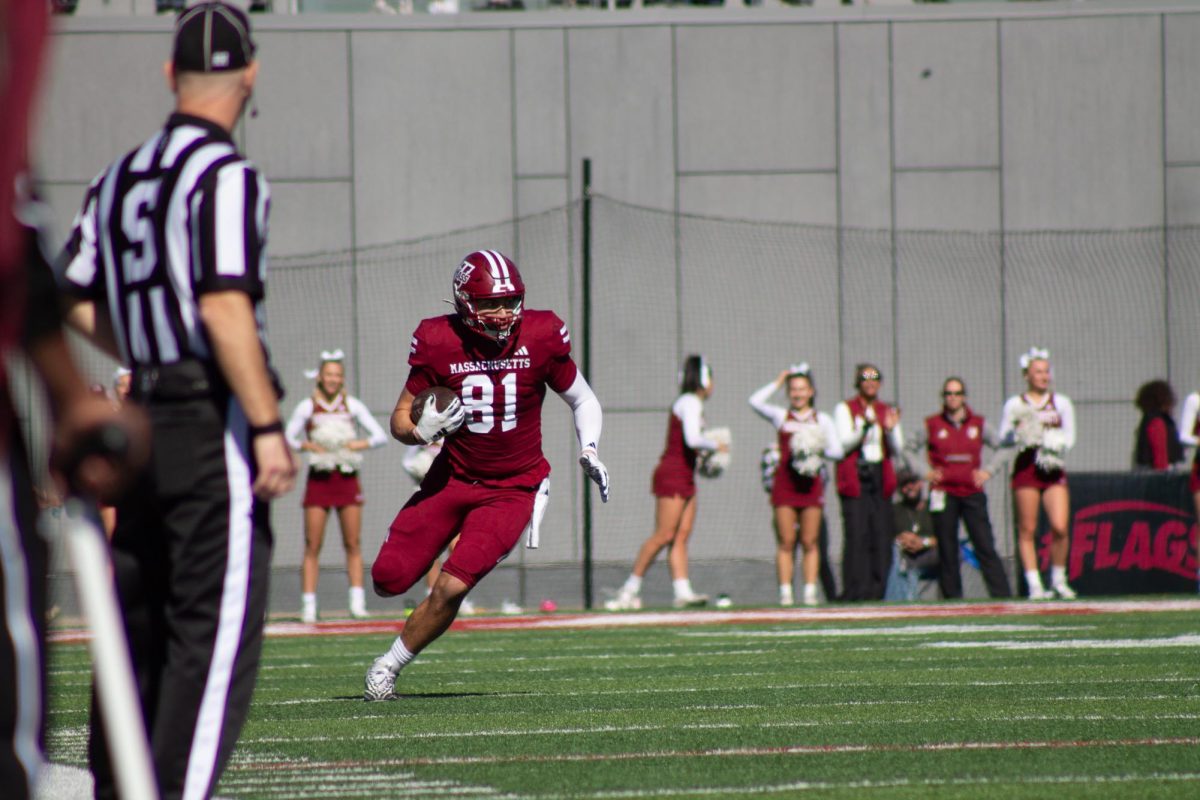Four days a week with three two-hour practices, one team of athletes remain as dedicated to their sport as their varsity counterparts that use the same facilities. The University of Massachusetts water polo team, 21 years after their elimination from their varsity title, are opening the season with new players, strategies and goals to make this year a memorable one.
In 2002, the Campus Chronicle reported that seven UMass Division I teams were cut from the athletic varsity roster. Former Chancellor Marcellette G. Williams and former athletic director Robert Marcum said that the cuts would “allow for the reallocation of some scholarship funds while also following Title IX guidelines.”
According to the Cape Cod Times, Chancellor Williams said that the athletic department’s budget had to be trimmed by $18 million to deal with cost-saving measures after the five-campus UMass system began to struggle with $28.5 million in state budget cuts.
Several factors determined the elimination of these teams, including Title IX participation considerations, facilities issues, in-state versus out-of-state participation and financial resources required to bring the sports to a more competitive level.
Junior president and sustainable community development major Lauren Graham thought that cutting both the men and women’s water polo teams was odd, considering the men’s team won the Eastern Championship and made their seventh NCAA appearance in 2001, while the women’s team were Eastern Champions three years earlier. The win-loss and post-season success did not seem to make sense regarding both teams’ records.
According to the NCAA, Division I schools provide their varsity athletes with “tutorial services, equipment, supplies and additional personnel” in order to support their student athletes in the best ways possible. Club sports only receive a fraction of support compared to their varsity counterparts, which barely allows them to purchase their necessary equipment and transportation.
With their revoked varsity status, both water polo teams suffered financially, academically and socially.
“For t-shirts and stuff we use the club dues to pay for that. Suits, unfortunately, we have to buy ourselves,” Graham said. “As far as goals, they’re really expensive and I don’t think that they make shallow end goals anymore, and we need one for this pool since we do have a shallow end.”
Donations are also provided through UMassGives, the MinuteFund, family and friends. The water polo teams are in a much better financial position this year than previous years, according to Graham. This optimistic outlook motivates the team to come up with new fundraising ideas to better support the team and any future purchases they need to make.
One way is through a fundraising tournament, hosted every March for the team’s friends. It not only helps raise money for the team, but allows the team’s friends and supporters to watch what they love to compete in.
Both water polo teams also acknowledge the meager academic support club sports are given. Varsity athletes are given support through degree completion assistance awards, diversity grants and scholarships, according to the NCAA. Despite UMass Amherst club sports representing their university on the court, field or pool, much of their academic support is overlooked or illusory.
“Varsity athletes are given excuses and things for missing class or for [missing] assignments. And so from the best of my knowledge … it would be kind of nice to see that [academic] support [for the club athletes].”
The water polo teams, who practice together but compete amongst their own genders, have academic struggles that are further rooted in their practice times. These late and last-minute time slots at Boyden Pool run from 8-10 p.m. on Mondays and Wednesdays, 8-9 p.m. on Fridays and 7-9 p.m. on Sundays, requiring student athletes to stay on campus all day until practice ends.
Time management is not new for many of these students. Palacios and medical anthropology major Ava Warner shared their experiences in finding time to write their honors thesis while juggling the rest of their schoolwork on top of attending three consecutive weekend tournaments and weekly practices.
“There’s not really a lot of time for academic work.” Palacios said. “So it definitely takes a lot of time budgeting and management in order to continue to be a successful student while also attending tournaments.”
Students such as Secretary David Del Rio, Vice President Joseph Sheridan, fall captain Joshua Fiorentino and spring captain Ashlee Wenzel dedicate their time to improving their e-board and working to develop a stronger team.
With an additional extra two hours a week delegating meetings for the team, plenty of students are exhausted but continue to show up, which is a large part of the team’s dynamic.
“Wanting to win tournaments and wanting to win games [is] one of the biggest things that motivates me to come to practice,” Palacios said. “Having practice and having all my other obligations really helps me budget my time.”
“Between all the schoolwork that I have, it’s nice to have a scheduled part of my week,” Sheridan said. “I get to let out a lot of energy … and do something that I wouldn’t normally go out of my way to do.”
With all the benefits of being a varsity sport, the question remains whether UMass should have eliminated water polo from that status. As varsity athletes, the team would have had the academic and financial support they would need as well as better practice times and facilities.
“I don’t think being a club sport is inherently bad,” Ashvath Balgovind, a graduate student in computer science said.. “I do think … the school does not really support us as much as if we were a varsity team. So, I don’t think that being a club team is what’s hindering us.”
Some students prefer the club to be as it is, without the varsity status. Sheridan added, “I think from a culture and organization standpoint, being student-run is definitely good for this team. I think within these walls, we do a good job of managing what we have and what we can, what we can do with it.”
Despite the long days of practices and little academic and financial support, the club team allows students to work and practice on a more flexible schedule, as students are not obligated to attend practices and tournaments.
“I like this club sport because if it was a varsity sport, I probably wouldn’t be here.” Warner said. “Especially being like a senior coming onto the team and not really knowing what water polo was, I feel like there’s a like accessibility to [being a club team].”
Most of the team returns each practice to prepare themselves to reach and fulfill their goals for the upcoming seasons. The men’s team competes in the fall and looks forward to their rivalry game against Amherst College. The two teams always end in close rounds, but in the fall of 2022, UMass Amherst was able to take home the win. They hope to continue the tradition this year.
The women’s team competes in the spring and aspires to attend Nationals and beat teams such as Boston University and Boston College in their New England division. As the only student-coached team in their division, they hope to make an impression and show their Minutewomen pride in the pool.
With all the hardships and trials the club may face, they’re willing to attack every issue with the same grace as a varsity team.
“This is my team,” Florentino, a graduate student in environmental engineering, said. “We want to score, we want to win. That’s the kind of attitude you have when you get in.”
Kalina Kornacki can be reached at [email protected] or followed on X (formerly known as Twitter) @KalinaKornacki.

